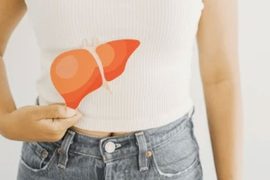A recent study led by the University of Sydney has highlighted a concerning global issue: antibiotic resistance in children, rendering many common antibiotics ineffective in treating childhood infections. The research found that several antibiotics recommended by the World Health Organization (WHO) had less than 50% effectiveness in addressing childhood infections, including conditions such as pneumonia, sepsis (bloodstream infections), and meningitis. This discovery emphasizes the pressing need for updated global guidelines on antibiotic use.
The most severely affected regions are in South-East Asia and the Pacific, including countries like Indonesia and the Philippines, where antibiotic resistance contributes to thousands of unnecessary child deaths each year. The WHO has recognized antimicrobial resistance (AMR) as one of the top 10 global public health threats, and the study underscores the gravity of the situation. In newborns, sepsis alone accounts for an estimated three million cases globally each year, with up to 570,000 resulting deaths due to the lack of effective antibiotics to combat resistant bacteria.
“We are not immune to this problem – the burden of anti-microbial resistance is on our doorstep. Antibiotic resistance is rising more rapidly than we realise. We urgently need new solutions to stop invasive multidrug-resistant infections and the needless deaths of thousands of children each year,” stated Dr Phoebe Williams, Lead Author.
The research adds to the growing body of evidence indicating that common bacteria responsible for sepsis and meningitis in children have developed resistance to prescribed antibiotics. The study suggests that the current global antibiotic guidelines, last updated by the WHO in 2013, urgently need revision to address the rapidly evolving rates of AMR.
One of the antibiotics examined in the study, ceftriaxone, was found to be effective in treating only one in three cases of sepsis or meningitis in newborn babies. Ceftriaxone is widely used in Australia for various pediatric infections, such as pneumonia and urinary tract infections. Another antibiotic, gentamicin, was likely to be effective in less than half of sepsis and meningitis cases in children. Gentamicin is often prescribed alongside aminopenicillins, which the study showed also had low effectiveness in combating bloodstream infections in babies and children.
Dr. Phoebe Williams, the lead author of the study, emphasized the increasing cases of multidrug-resistant bacterial infections in children worldwide. She stressed that AMR poses a more significant problem for children than adults, as new antibiotics are less likely to be trialed on and made available to children. The study analyzed a substantial number of bacterial isolates from various countries, demonstrating the widespread issue of antibiotic resistance in childhood infections.
To address this critical problem, Dr. Williams called for increased funding for research into new antibiotic treatments specifically designed for children and newborns. She is currently investigating an older antibiotic, fosfomycin, as a potential treatment for multidrug-resistant urinary tract infections in children in Australia. Additionally, Dr. Williams is collaborating with the WHO’s Paediatric Drug Optimisation Committee to ensure that children have access to antibiotics for treating multidrug-resistant infections promptly, with the goal of reducing child mortality resulting from AMR.
“This study reveals important problems regarding the availability of effective antibiotics to treat serious infections in children,” states senior author Paul Turner, director of the Cambodia Oxford Medical Research Unit at Angkor Hospital for Children, Siem Reap and professor of paediatric microbiology at the University of Oxford, UK.
“It also highlights the ongoing need for high quality laboratory data to monitor the AMR situation, which will facilitate timely changes to be made to treatment guidelines.”
Disclaimer:
The information contained in this article is for educational and informational purposes only and is not intended as a health advice. We would ask you to consult a qualified professional or medical expert to gain additional knowledge before you choose to consume any product or perform any exercise.








